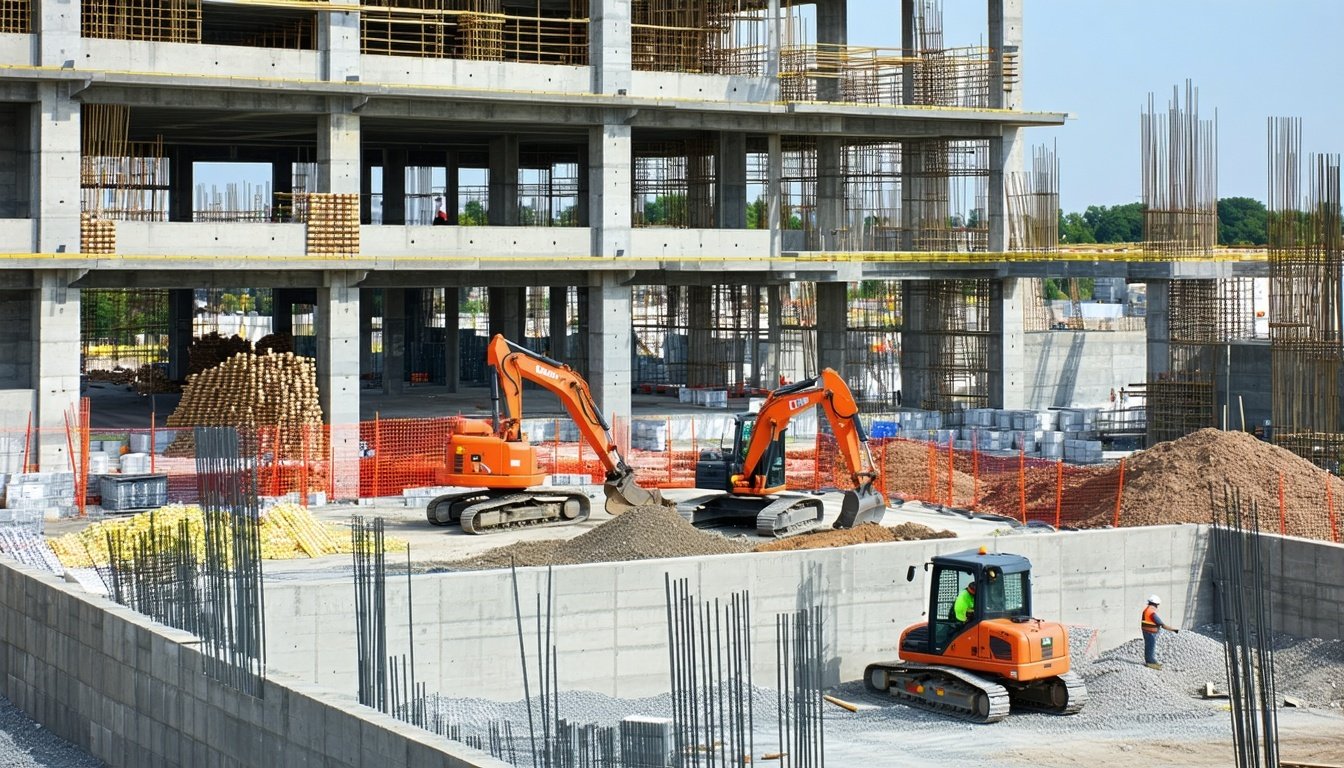Elevate your construction company's sustainability with Life Cycle Assessment (LCA) and lead the industry in Corporate Social Responsibility (CSR).
Understanding Life Cycle Assessment in Construction
Life Cycle Assessment (LCA) is a comprehensive evaluation of the environmental impacts associated with all stages of a product, building, or process. In the construction industry, this means analysing everything from raw material extraction, manufacturing, and transportation, to usage, maintenance, and eventual disposal or recycling. By examining the full life cycle, LCA provides a holistic view of a construction project's environmental footprint.
At Certified Energy, we recognise the importance of this thorough analysis. Our LCA service is designed to identify environmental hotspots, such as areas with high energy consumption, significant greenhouse gas emissions, excessive water use, and substantial waste generation. By pinpointing these critical areas, we help construction companies understand their environmental impact and develop strategies to mitigate it.
The Role of LCA in Enhancing Corporate Social Responsibility
Corporate Social Responsibility (CSR) is increasingly becoming a cornerstone of modern business practices, particularly in the construction industry. LCA plays a pivotal role in enhancing CSR by providing data-driven insights into the environmental impacts of construction activities. Companies can use LCA to demonstrate their commitment to sustainability, transparency, and ethical practices.
By integrating LCA into their CSR strategies, construction companies can show stakeholders, including investors, clients, and regulatory bodies, that they are proactively managing their environmental responsibilities. This not only bolsters a company's reputation but also builds trust and strengthens relationships with key stakeholders.
Key Benefits of LCA for Construction Companies
Conducting an LCA offers numerous benefits for construction companies, including:
- **Improved Resource Efficiency**: By identifying areas of high resource consumption, companies can implement measures to reduce waste and optimise the use of materials and energy.
- **Sustainable Product and Building Design**: LCA data can guide the design process, leading to more sustainable buildings that have lower environmental impacts throughout their life cycles.
- **Supply Chain Optimisation**: Understanding the environmental impacts of materials and processes allows companies to make more sustainable choices in their supply chains.
- **Regulatory Compliance**: Many regulations now require environmental impact assessments. LCA helps companies meet these requirements and avoid potential fines or legal issues.
- **Risk Management**: By identifying environmental risks early, companies can take proactive steps to mitigate them, reducing the likelihood of costly environmental incidents.
- **Enhanced Corporate Social Responsibility**: Demonstrating a commitment to sustainability can improve a company's public image and foster goodwill among stakeholders.
Real-World Examples of LCA Driving Sustainable Practices
Several construction companies have already reaped the benefits of LCA. For instance, a major construction firm used LCA to redesign their building materials, resulting in a 20% reduction in greenhouse gas emissions and significant cost savings. Another company optimized their supply chain by choosing materials with lower environmental impacts, leading to a 15% reduction in overall project costs.
These real-world examples highlight how LCA data can drive innovation, cost savings, and stronger environmental communication to stakeholders. By leveraging LCA, construction companies can not only meet their sustainability goals but also gain a competitive edge in the market.
Take Action: Partner with Us for Expert LCA Consultation
At Certified Energy, we are committed to helping construction companies achieve their sustainability goals through expert LCA analysis. Our team of experienced professionals provides comprehensive LCA services that guide informed sustainability decisions, ensure regulatory compliance, and support carbon reduction goals.
If you are a building owner, developer, manufacturer, or sustainability manager looking to understand and reduce your environmental footprint, we invite you to contact Certified Energy for a consultation. Together, we can work towards a more sustainable future for the construction industry.







